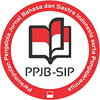Micro-Teaching Video as Assignment for Indonesian EFL University Students; Exploring Pre-Service Teachers’ Self-Efficacy
Sari
Teks Lengkap:
PDF (English)Referensi
Demirel, E.E. (2017). Investigating pre-service EFL teachers’ self-efficacy beliefs. Selçuk Üniversitesi Sosyal Bilimler Enstitüsü Dergisi, (38), 221-232
Hoag, T., & Wyatt, M. (2021). Exploring the self-efficacy beliefs of Vietnamese pre-service teachers of English as a foreign language. System, 96, 102422
Kirsch, W., & Sarmento, S. (2018). Workshops as an avenue of teacher development in a Language without Borders community in Southern Brazil. BELT: Brazilian English Language Teaching Journal. Porto Alegre, RS. Vol. 9, n. 2 (July/Dec. 2018), p.[395]-408
Kokkinos, T. (2022). Student Teachers and Online Microteaching: Overcoming Challenges in the Age of the Pandemic. European Journal of Educational Research, 11(3), 1897-1909.
Ledger, S., & Fischetti, J. (2020). Micro-teaching 2.0: Technology as the classroom. Australasian Journal of Educational Technology, 36(1), 37-54.
Lee, Y. J., Davis, R., & Li, Y. (2023). Korean Pre-service Teachers' Self-efficacy with Online Micro-Teaching Activities in a Teacher Education Program. International Journal of Instruction, 16(4).
Megawati, F., & Astutik, Y. (2018). TEACHING PRACTICUM: INVESTIGATING EFL PRE-SERVICE TEACHERS’SELF-EFFICACY. English Review: Journal of English Education, 7(1), 125-136.
Siregar, A. (2019). The Perceived Influence of Part-Time Teaching toward Students’ Performance in Micro-Teaching Class (Doctoral dissertation, UIN Ar-Raniry Banda Aceh).
Sumarno, W. K. (2019). INVESTIGATING THE IMPACT OF MICROTEACHING LESSON STUDY TO THE PROSPECTIVE ENGLISH TEACHERS’ SELF-EFFICACY. Jurnal Smart, 5(1), 1-12.
TAKKAÇ TULGAR, A. (2019). The Effects of Microteaching Practices on Pre-service EFL Teachers' Professional Self-efficacy Development. Erzincan University Journal of Education Faculty/Erzincan Üniversitesi Egitim Fakültesi Dergisi, 21(2).
Utami, R. A. (2020). An Analysis Of Students' Challenges In Micro Teaching Class: Phenomena At English Language Education Of FKIP UIR (Doctoral dissertation, Universitas Islam Riau).
Widyawati, Y., & Fitriah, F. (2023). Reading Self-Efficacy of EFL Students on Pre-Service Teaching Program and Practice in the EFL Classrooms. Pedagogy: Journal of English Language Teaching, 11(1), 99-108.
Zalavra, E., & Makri, K. (2022). Relocating online a technology-enhanced microteaching practice in teacher education: Challenges and implications. Electronic Journal of e-Learning, 20(3), 270-283.
Zuhra, S. (2017). Micro Teaching: An Investigation into the Benefits and Challenges (Doctoral dissertation, UIN Ar-Raniry Banda Aceh).
Zulfikar, T., Nidawati, N., Khasinah, S., & Mayangsari, I. (2020). Indonesian students’ perceived benefits of the micro-teaching course to their teaching internship. Indonesian Journal of Applied Linguistics, 10(1), 242-250.
DOI: https://doi.org/10.33387/tekstual.v22i2.9231
Refbacks
- Saat ini tidak ada refbacks.
Tekstual terindeks oleh:



